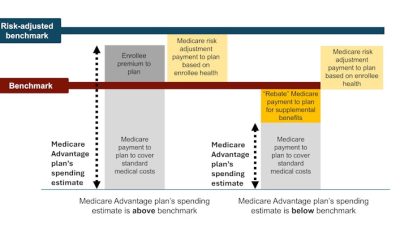ExxonMobil has been granted nearly $580 million in tax abatements in Louisiana since 2000. Barry Lewis/Getty Images
Louisiana Gov. Jeff Landry signed an executive order on Feb. 21, 2024, removing school boards’ veto power over corporate property tax breaks that take money away from schools. It also did away with a requirement that projects granted the tax breaks create jobs and retain jobs.
Now, companies that apply for Louisiana’s Industrial Tax Exemption Program, which can grant property tax breaks of 80% over 10 years, will go to a local industrial board, then a state industrial board, for approval. If the local and state boards disagree on whether to grant a tax break, the governor will be the tiebreaker.
The order nullified a previous governor’s 2016 order allowing schools to have more of a say in approving tax breaks that could harm their students.
We are a group of researchers who wrote for The Conversation about the billions of dollars students and schools lose out on yearly when cities and states grant corporate property tax abatements.
Tax abatement programs have long been controversial, and their economic value is at best unclear: Studies show most companies would have made the same location decisions without these taxpayer subsidies. Meanwhile, schools make up the largest cost item in these communities, meaning they suffer most when companies are granted breaks in property taxes.
One of the areas we focused on was East Baton Rouge Parish, Louisiana, which is facing budgetary woes including shortages of bus drivers and teachers.
Since 2000, Louisiana has granted a total of US$35 billion in corporate property tax breaks for 12,590 projects.
Former Louisiana Gov. John Bel Edwards signed the 2016 executive order that gave local taxing bodies – such as school boards, sheriffs and parish or city councils – the ability to vote on their own individual portions of the tax exemptions.
In 2019, the East Baton Rouge Parish School Board exercised its power to vote down an abatement. In 2022, a year where ExxonMobil made a record $55.7 billion in profit, the company asked for a tax break from the cash-starved East Baton Rouge school district. After a lively debate, including comments from 49 citizens, the board voted to grant the tax rate.
Throughout the U.S., school boards’ power over the tax abatements that affect their budgets vary, and in some states, including Georgia, Kansas, Nevada, New Jersey and South Carolina, school boards lack any formal ability to vote or comment on tax abatement deals that affect them.
Landry’s recent order added Louisiana to the list.
Read the full investigation here: Students lose out as cities and states give billions in property tax breaks to businesses − draining school budgets and especially hurting the poorest students
Christine Wen worked for the nonprofit organization Good Jobs First from June 2019 to May 2022 where she helped collect tax abatement data.
Nathan Jensen has received funding from the John and Laura Arnold Foundation, the Smith Richardson Foundation, the Ewing Marion Kauffman Foundation and the Washington Center for Equitable Growth. He is a Senior Fellow at the Niskanen Center.
Danielle McLean and Kevin Welner do not work for, consult, own shares in or receive funding from any company or organization that would benefit from this article, and have disclosed no relevant affiliations beyond their academic appointment.













